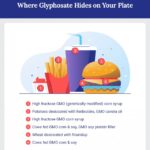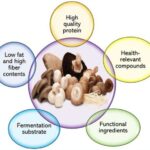Food poisoning is an unpleasant experience that can leave you feeling weak and uncomfortable. It’s caused by consuming contaminated food or drink, leading to a variety of symptoms, primarily vomiting, diarrhea, and abdominal cramps. If you suspect you have food poisoning, knowing the right steps to take can help you manage your symptoms and recover effectively.
Diagnosis of Food Poisoning
Diagnosing food poisoning usually involves a physical examination by a healthcare provider and a thorough review of your symptoms and recent eating habits. Your doctor will likely ask detailed questions about:
- Your specific symptoms: When they started, how severe they are, and whether they are constant or intermittent.
- Recent food and drink consumption: What you’ve eaten and drunk in the past few days.
- Symptoms in others: Whether anyone who ate with you is experiencing similar symptoms.
- Medications and travel: Any recent changes in your medications or recent travel history.
To rule out other potential causes and assess the severity of your condition, your healthcare provider may order the following tests:
- Stool sample tests: These tests help identify the specific bacteria, viruses, parasites, or toxins causing your illness.
- Blood tests: Blood tests can help determine the cause of the illness, rule out other conditions, and identify any complications, such as dehydration.
Alt: Stool sample collection kit with collection container, instructions and transport container, used to diagnose cause of food poisoning.
Pinpointing the exact source of contamination can be challenging, especially when only one person or a family is affected. The incubation period, the time between consuming contaminated food and the onset of symptoms, can range from hours to days. During this period, you may have consumed multiple meals, making it difficult to identify the culprit. However, in cases of large outbreaks, public health officials can often trace the contamination back to a common food source shared by all affected individuals.
Treatment Options for Food Poisoning
In most cases, food poisoning resolves on its own without the need for specific drug treatments. The primary focus of treatment is to manage symptoms and prevent complications, such as dehydration.
- Fluid Replacement: Vomiting and diarrhea can lead to significant fluid loss, causing dehydration. It’s crucial to replenish fluids and electrolytes, which are essential minerals like sodium, potassium, and calcium that maintain the balance of fluids in your body. Mild to moderate dehydration can usually be managed by drinking plenty of water, sports drinks (which contain electrolytes), or diluted juice. For children and individuals at higher risk of complications, oral rehydration solutions like Pedialyte or Enfalyte are recommended. Severe dehydration may require hospitalization and intravenous (IV) fluid administration.
Alt: Image depicting an IV drip being administered to a patient, a method used for fluid replacement in severe cases of dehydration due to food poisoning.
- Antibiotics: If a bacterial infection is identified as the cause of your food poisoning, your doctor may prescribe antibiotics. However, antibiotics are typically reserved for severe cases or individuals at higher risk of complications.
- Antiparasitic Medications: In cases of parasitic infections, antiparasitic drugs are prescribed to target and eliminate the parasites.
- Probiotics: Your healthcare provider may recommend probiotics to help restore the balance of healthy bacteria in your digestive system, which can be disrupted by food poisoning.
For diarrhea and upset stomach, adults can consider over-the-counter medications like loperamide (Imodium A-D) for diarrhea (as long as it’s not bloody and there’s no fever) and bismuth subsalicylate (Pepto-Bismol, Kaopectate) for upset stomach. However, these medications are generally not recommended for children. Always consult your doctor before taking any medication, especially if you have underlying health conditions or are taking other medications.
Home Remedies and Lifestyle Adjustments
For most people, symptoms of food poisoning improve within 48 hours without medical intervention. To alleviate discomfort and promote recovery, consider the following lifestyle and home remedies:
- Let Your Stomach Settle: Avoid eating until your stomach has settled and you feel hungry again.
- Replace Fluids: Drink plenty of clear fluids, such as water, sports drinks, juice diluted with water, or broths, to prevent dehydration.
- Ease Back into Eating: Gradually reintroduce bland, low-fat, and easily digestible foods like soda crackers, toast, gelatin, bananas, and rice. Avoid eating if you feel nauseous.
- Avoid Irritating Foods and Substances: Steer clear of dairy products, caffeine, alcohol, nicotine, and fatty or heavily seasoned foods until you feel better.
- Rest: Get plenty of rest to allow your body to recover from the illness and dehydration.
Alt: Person resting in bed, highlighting the importance of rest as a home remedy for recovery from food poisoning.
When to Seek Medical Attention
While most cases of food poisoning are mild and self-limiting, it’s crucial to seek medical attention if you experience any of the following:
- High fever (over 101.5°F or 38.6°C)
- Bloody diarrhea or stools
- Severe abdominal pain
- Persistent vomiting
- Signs of dehydration, such as decreased urination, dizziness, or extreme thirst
- Neurological symptoms, such as muscle weakness, blurred vision, or tingling in the arms or legs
These symptoms may indicate a more severe infection or complication that requires prompt medical treatment.
Preparing for Your Doctor’s Appointment
If you decide to seek medical attention, be prepared to answer the following questions to help your healthcare provider diagnose and treat your condition effectively:
- When did your symptoms begin?
- Are your symptoms constant or intermittent?
- Have you had bloody diarrhea or stools?
- Have you had a fever?
- What have you eaten recently?
- Did anyone else who ate the same food experience similar symptoms?
- Have you traveled recently? If so, where?
- What medications, supplements, or herbal remedies are you currently taking?
- Have you taken antibiotics recently?
- Have you recently changed medications?
By providing detailed information about your symptoms, recent eating habits, and medical history, you can help your healthcare provider accurately diagnose and treat your food poisoning.

